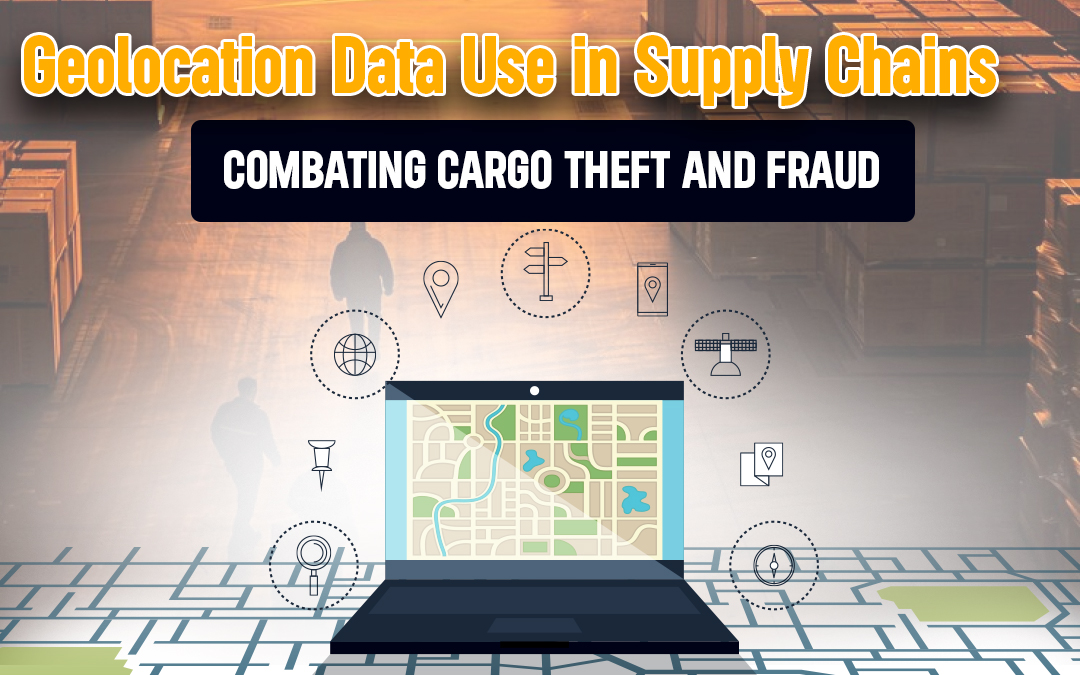
The COVID-19 pandemic has reshaped the global supply chain landscape, bringing with it an increase in vulnerabilities and threats, particularly in the form of cargo theft and fraud. As businesses struggled to adapt to disruptions in production and transportation, criminals exploited these weaknesses, leading to a significant rise in criminal activities targeting the supply chain. In response, the use of IP-based geolocation data has emerged as a crucial tool in combating these threats, providing companies with the means to enhance security, prevent fraud, and optimize their operations.
The Surge in Cargo Theft During the Pandemic
The trucking industry, a vital component of global logistics, experienced a sharp increase in cargo theft during the pandemic. Data from CargoNet revealed a dramatic rise in theft incidents, with 1,059 cargo theft events reported in the United States and Canada in 2020, up from 758 in 2019. The trend continued into 2021, with theft activity remaining above pre-pandemic levels.
Criminals targeted high-demand goods such as food, beverages, and medical supplies, taking advantage of the heightened need for these items during the pandemic. The economic downturn further exacerbated this trend, as thieves increasingly focused on essential goods rather than luxury items. This shift in criminal behavior highlighted the need for more robust security measures within supply chains, leading many companies to explore innovative solutions like IP-based geolocation data.

The Role of IP-Based Geolocation Data in Combating Fraud and Theft
The integration of IP-based geolocation data into supply chain management has proven to be a powerful tool in addressing the challenges posed by cargo theft and fraud. By providing real-time visibility into the movement of goods and the devices used in logistics operations, this technology allows companies to track and monitor assets with unprecedented precision. Here’s how IP-based geolocation data has been applied across different areas of the supply chain:
1. Warehouse Operations: Enhancing Security and Device Management
Warehouses are critical hubs within the supply chain where goods are stored, sorted, and prepared for shipment. The increased use of networked devices, such as handheld scanners and mobile computers, has made these facilities more efficient but also more vulnerable to theft and fraud.
Amazon has been at the forefront of utilizing IP-based geolocation data to enhance security within its warehouses. By deploying geolocation systems, Amazon can continuously monitor the location of networked devices within its facilities. If a device is moved outside of a designated area, an alert is triggered, allowing for immediate action to be taken. This system not only prevents theft but also ensures that devices are being used as intended, thereby improving operational efficiency.
Additionally, Amazon has implemented virtual geofencing to secure its warehouses further. This technology allows Amazon to set up digital boundaries around sensitive areas, such as storage zones for high-value items. If a device or personnel breaches these boundaries, security teams are notified, enabling them to respond swiftly to potential threats.
2. Logistics and Distribution: Preventing Carrier Fraud
Carrier fraud, where criminals imitate legitimate drivers with falsified documents, has become a significant concern in the global supply chain. According to TT Club, an international freight transport insurer, carrier fraud accounted for 84% of its claims involving fraud or deception in 2021. Criminals often intercept haulage instructions and pose as authentic carriers, stealing loads by falsifying cargo pick-up or delivery documentation.
TT Club has identified numerous instances where fraudsters use freight exchange sites to provide false instructions to drivers, leading to the theft of cargo. In one case, a fraudster posed as a forwarder, matching a legitimate driver to a shipper. The fraudster then provided the driver with new instructions to deliver the goods to an alternative address, where the cargo was stolen.
To combat such fraud, TT Club recommends that companies implement IP-based geolocation tracking for their fleet operations. This technology allows companies to monitor the movement of their vehicles in real time, ensuring that drivers follow the correct routes and deliver goods to their intended destinations. By combining geolocation data with telematics, companies can also track vehicle performance metrics, such as fuel consumption and engine health, helping to identify any irregularities that may indicate fraudulent activity.
3. Fleet Management: Enhancing Security and Efficiency
For businesses managing extensive fleets, IP-based geolocation data has become an indispensable tool in enhancing both security and efficiency. Real-time tracking of vehicles enables fleet managers to monitor the location and status of each vehicle, ensuring that they are on the correct route and operating as expected.
UPS, a global leader in logistics, has leveraged IP-based geolocation data to optimize its fleet management operations. By implementing real-time tracking systems, UPS can monitor its vehicles' locations, helping to prevent theft and improve delivery accuracy. In one notable instance, UPS was able to recover a stolen truck and its cargo within hours, thanks to its geolocation tracking system. The technology also allows UPS to optimize delivery routes based on current traffic conditions and weather, reducing fuel costs and improving overall efficiency.
Furthermore, geolocation data has enabled UPS to enhance its vehicle maintenance program. By tracking vehicle performance metrics, UPS can schedule maintenance proactively, reducing the risk of breakdowns and extending the lifespan of its fleet. This approach has proven particularly valuable during peak delivery seasons, such as the holiday period, when fleet reliability is critical.
Conclusion
The rise in cargo theft and fraud during the COVID-19 pandemic has highlighted the need for more sophisticated security measures within global supply chains. The use of IP-based geolocation data has emerged as a powerful tool in addressing these challenges, providing companies with the ability to monitor their assets in real time, prevent fraudulent activities, and optimize their operations.
Examples from industry leaders like Amazon, TT Club, and UPS demonstrate the effectiveness of this technology in combating theft and fraud. As the global supply chain continues to evolve, the integration of IP-based geolocation data will play an increasingly vital role in ensuring the security and efficiency of logistics operations. By embracing this innovation, companies can protect their assets, reduce losses, and build more resilient supply chains for the future.
References
Share this post
Leave a comment
All comments are moderated. Spammy and bot submitted comments are deleted. Please submit the comments that are helpful to others, and we'll approve your comments. A comment that includes outbound link will only be approved if the content is relevant to the topic, and has some value to our readers.

Comments (1)
This is a well written article highlighting the importance of innovative solutions like IP-based geolocation data to combat rising cargo theft.
Dec 03, 2021 at 10:59 AM